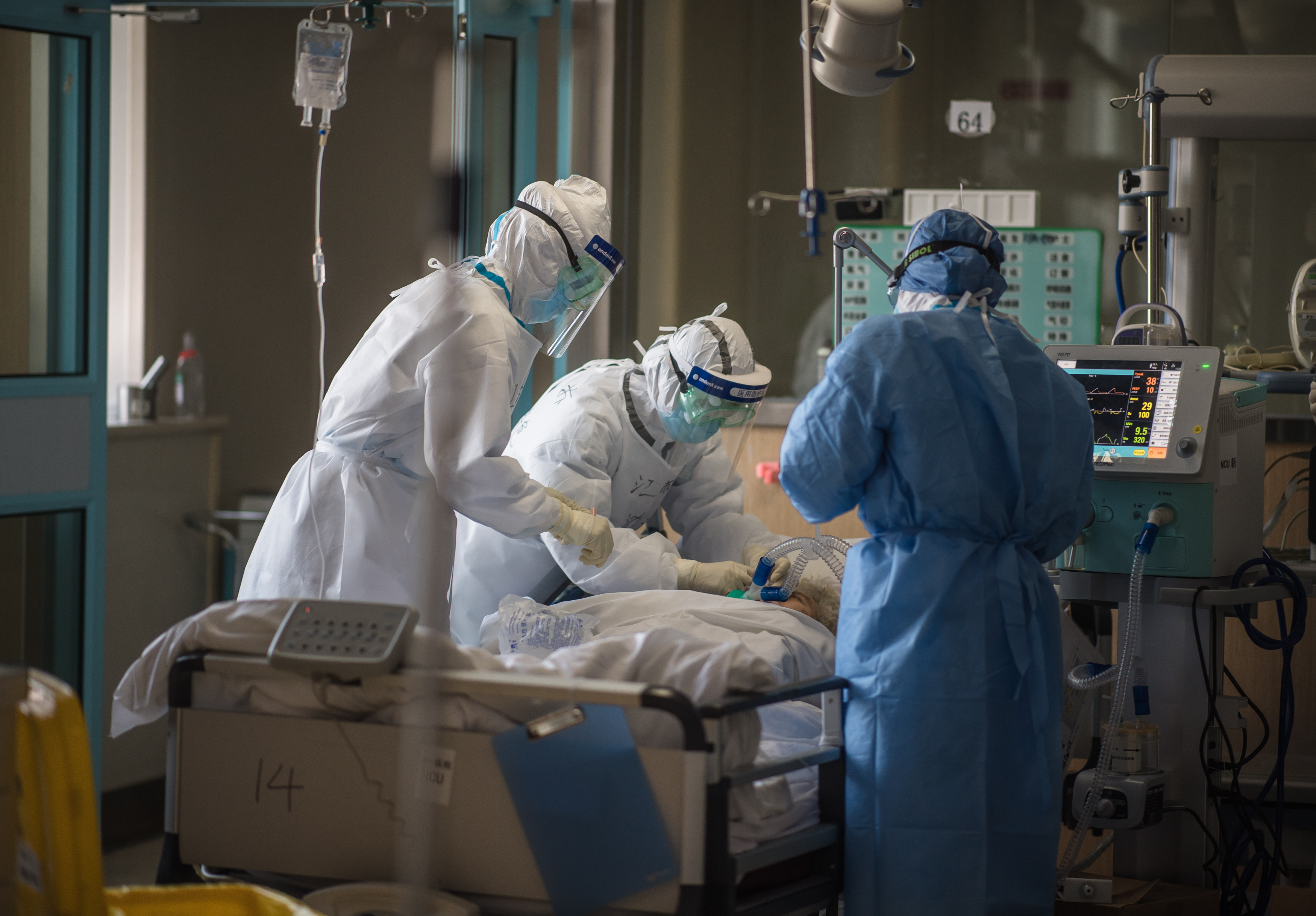
Medical staff members from Jiangsu Province work at an ICU ward of the Wuhan No. 1 Hospital in Wuhan, central China's Hubei Province, Feb. 22, 2020. (Xinhua/Xiao Yijiu)
Chinese doctors have cured a male patient whose cerebrospinal fluid had the virus. Previous studies show that COVID-19 may attack multiple organs, including kidneys, livers and heart.
BEIJING, March 5 (Xinhua) -- Chinese doctors have proved for the first time that the novel coronavirus can cause damage to patients' central nervous system.
Doctors from Beijing Ditan Hospital affiliated to Capital Medical University, a designated institution treating the novel coronavirus disease (COVID-19), announced Thursday that they have cured a male patient whose cerebrospinal fluid had the virus.
Previous studies show that COVID-19 may attack multiple organs, including kidneys, livers and heart, but there are no records about the central nervous system damage.
The patient, 56, was diagnosed with the COVID-19 on Jan. 24 at the hospital. He had severe symptoms and failed to respond to regular treatment, according to a hospital statement.
In the intensive care unit (ICU), the patient developed symptoms associated with decreased consciousness, though there were no abnormal signs on his head CT images.
The medical staff then conducted gene sequencing on samples of his cerebrospinal fluid and confirmed the presence of the novel coronavirus, diagnosing the COVID-19 patient with encephalitis, an inflammation of the brain.
After the treatment of viral encephalitis, the patient's neurological symptoms gradually disappeared.
He was transferred to the infectious ward on Feb. 18 and was discharged from the hospital on Feb. 25.
Liu Jingyuan, ICU director of the hospital and attending doctor of the patient, said that once a COVID-19 patient is found to have disorders of consciousness, medical staff should consider the possibility of nervous system infections and carry out cerebrospinal fluid tests in time, to avoid delayed diagnosis and further reduce the mortality rate of critically ill patients. ■



